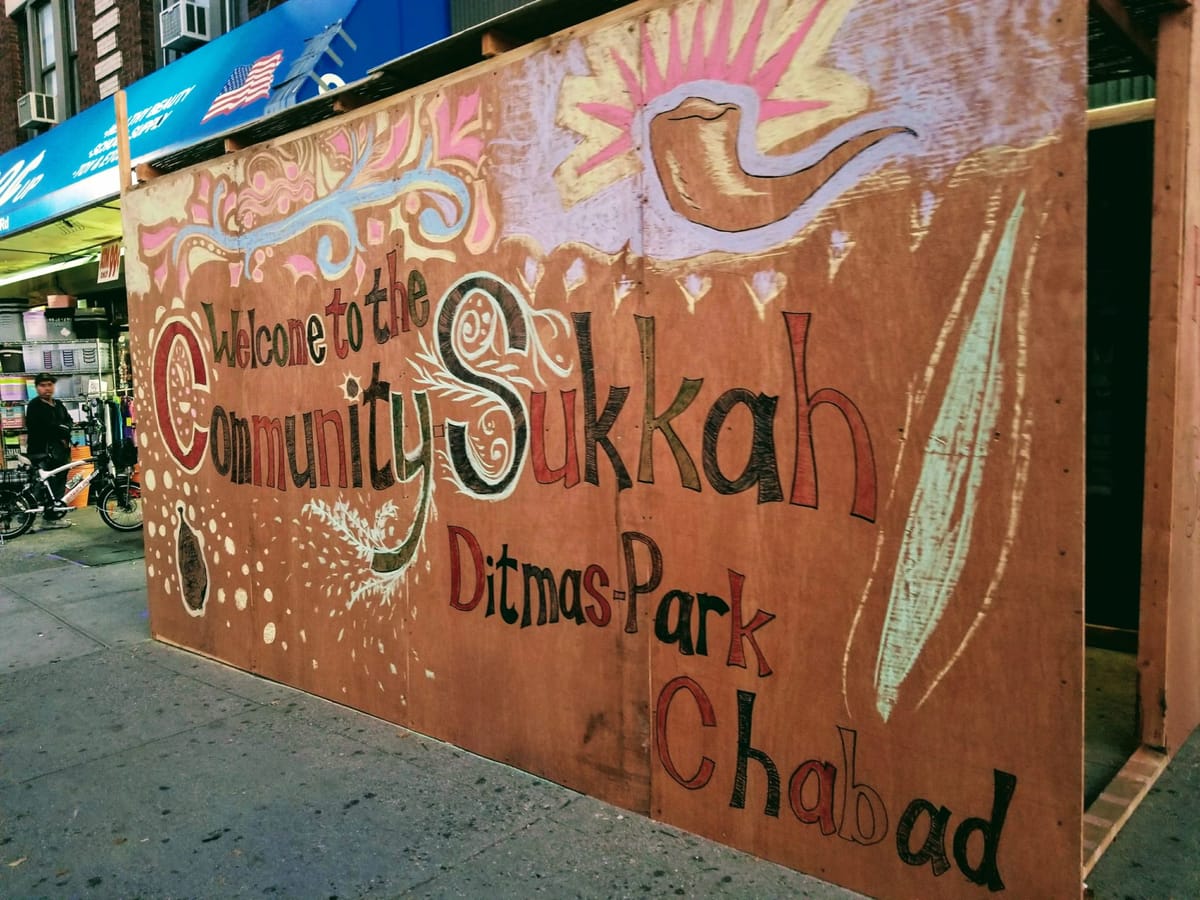On Sukkot And Fragility Of Being


Jewish holiday of Sukkot began yesterday evening and will end next Wednesday, October 11. It is customary for those observing to construct temporary shelters for gathering over the week-long holiday, and you can see them all over the borough – some on sidewalks, others in driveways, backyards, rooftops, and balconies.
I came across this moving reflection by a fellow Brooklynite Liz Fisher last night on the holiday, and how it relates to recent disasters in the South that have left so many in need of temporary shelters:
Tonight, we begin the Jewish holiday of Sukkot, in which many of us build or visit temporary huts, created to dine and dwell in. I love Sukkot. I believe that it would be more popular were it not for its unfortunate timing on the back of the exhaustion that is Yom Kippur. Most years, Sukkot is for me a lesson in fragility and temporariness. Life right now feels as fragile and temporary as ever.
This year, though, I’m thinking not about impermanence, but about building. Each year, we build these temporary huts. They are similar to the year before, but not exact. They are created for a period of time. They don’t fully protect us from the elements, but they create a space in which to experience the world around us. We decorate them, and try to make them beautiful. We invite in guests, and symbolically invite in the thoughts memories of others we are inspired by.
On Sukkot, we learn what I learned at the funeral, in Miami, in Houston. We have the ability to create shelter in times of need – however imperfect, however temporary, however fragile. We are in the elements, but we have the ability to try, within that context, to create something to protect us. That something might be community, it might be family of birth or family of choice, it might be the actions of giving or volunteering. It never fully protects us. It sometimes doesn’t even partially protect us. When we can’t build our own shelter, people do it for us. That’s what shiva in the Jewish tradition is. People feeding us, caring for us, building a hut around us while we sit in our devastation unable to build anything for ourselves.
Sukkot is about creating the shelter we need. It’s about rebuilding. That’s what makes the impossible time, possible. It’s a small piece of technology in a very fragile existence.”



